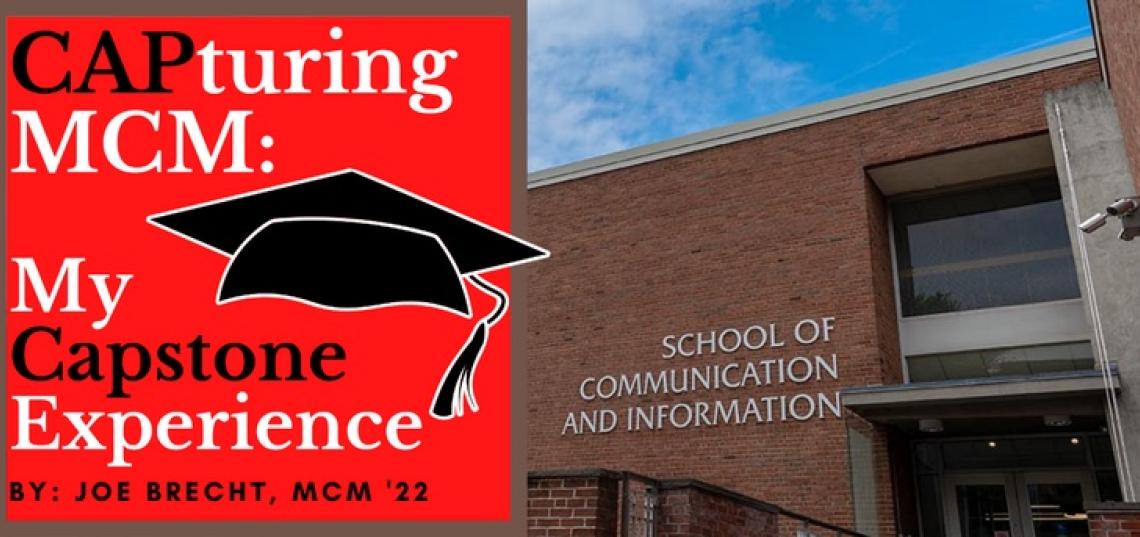
Milestone #1: The Paper Outline As I mentioned in my introductory post, writing a capstone paper for the MCM is a process. Indeed, it can seem rather daunting when you first open up the syllabus and see what is expected of you. However, as scary as the prospect of writing a roughly twenty-page research paper can be, the capstone course is designed in such a way that, over the course of the semester, you (and I) will gradually assemble the components of the paper. In other words, there will be regular points of progress to stop and reflect on. This also means that no amount of cramming and speed writing can shortchange the process.
Receiving feedback from your capstone professor is an important part of the course, as the wonderful SC&I faculty are here to help us succeed. This semester, I am working with Dr. Albert Widman to complete my capstone paper. We recently submitted our Paper Outlines, which I will talk more about below. He explains how the course structure contributes to the eventual success of MCM students:
During the capstone process, you are busy doing a ton of academic reading to become a subject matter expert on your topic. But it takes more than just a random collection of data to put together a well-structured, compelling capstone. By having you put together an outline early in the process, it will instill within you a feel for how the various pieces fit together.
Just as the old saying goes, the complete capstone paper really is greater than the sum of its parts. Completing a Paper Outline gives us, the students, an opportunity to better organize our thoughts and map out our projects. It also gives professors like Dr. Widman a chance to provide constructive feedback, an important check in the largely self-guided course. To continue building on the progress of previous steps, it is important to ensure that each step you take is sound. For example, Dr. Widman helped me revise my research question - the central question guiding my inquiry - to make addressing it more manageable.
Now, what exactly does this paper outline entail? As Dr. Widman explains, this assignment "moves you from the conceptualization role you assumed (during the preparation of the topic paper) into the realm of operationalization." In other words, this outline will serve as a point of reference, or a blueprint, to help turn our initial ideas and interests into a solid, workable research project. The paper outline is broken into several sections, which may vary slightly according to your particular subject:
- Introduction - Provides readers with background information and context, an overview of key concepts and theories you will explore
- Literature Review - A systematic review of the existing academic literature on the subject, with an eye toward identifying key themes
- Methods - How you will conduct the research; in most cases, you will be conducting a content analysis
- Findings - Present the key themes, messages, or concepts that emerged from your content analysis (NOTE: this section should be an objective reporting of facts, data)
- Conclusion - Summary of your paper and a reflection on the findings you presented in the previous section, explaining the significance of your work and contribution to the field
I know, I know, this definitely seems like a lot. Yet, the genius of the paper outline is that you are not expected to include every single point you intend to make in every single one of those sections. For example, it would be pretty hard to report on findings and to draw conclusions before the actual research has taken place. Your outline will likely be a handful of pages, at most, and is really meant to get you started on the path to assembling the paper. Writing your initial thoughts for each section will also help your professor to steer you in the right direction by giving them the opportunity to provide feedback before you are too far along in the writing process.
So really, at the end of the day, completing the capstone paper in stages is meant to help us MCM students work smarter, not harder. And, as is the case with all other courses, it is important to take a step back and breathe. Yes, on paper, you will be accomplishing quite a lot in your capstone course. Yet, at the same time, it is important to remember that you are not expected to take on the whole syllabus at once. Our wonderful SC&I faculty are here to guide us through each step in the process - a process that is designed to help us succeed!
